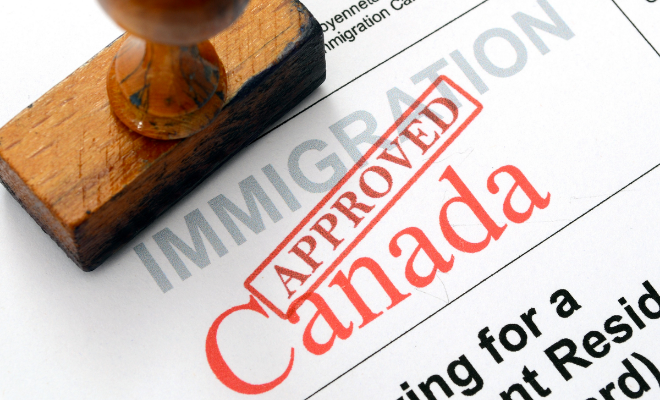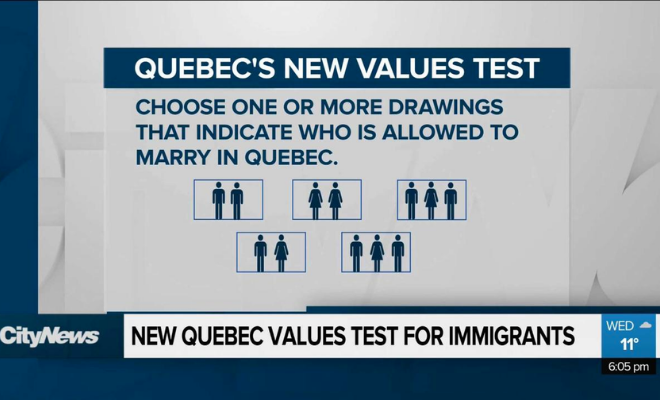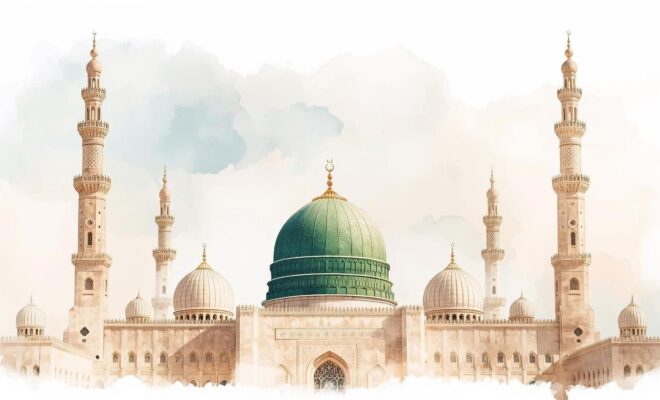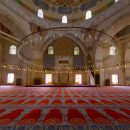Does Islam Allow Us to Vote in the Secular System?
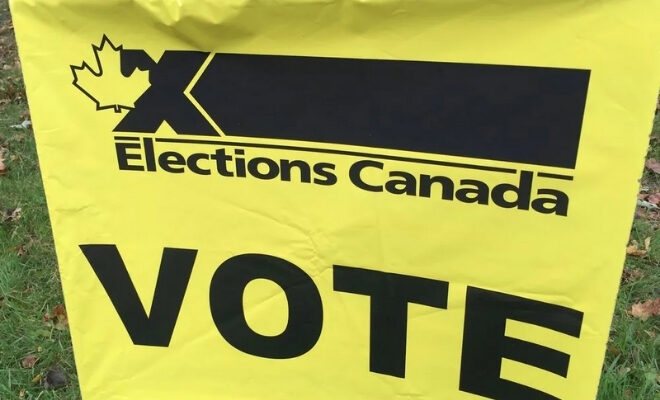
On August 15th, Prime Minister Justin Trudeau called a snap general federal election on September 20th. As with every federal election, the Muslim community in will experience a serious push by the various political parties and some organizations and influencers to “go out and vote.”
Such a call is not new as we have seen such aggressive push to vote in the past. However, given the backdrop of growing anti-Islamic and anti-Muslim sentiments and outright violent attacks across the country, we might feel pressured to support a certain party and participate in the political system with greater force so as to protect ourselves.
We do not want to endure anti-Islam/anti-Muslim hate and rhetoric, especially from the government. We all remember the dog-whistle politics former Conservative leader, Stephen Harper engaged in, and the injustice some of our brothers and sisters experienced as a result of the Liberals’ so-called War-on-Terror policies.
However, as Muslims, we should not take our personal safety as the guide or reference point for our actions. Rather, we must seek the guidance of Allah (swt) at all times. We want to ensure that our actions stay in line with the commands of Allah (swt); otherwise, we will be disobeying Allah (swt) and inviting His wrath. But if we obey Allah (swt), we will work in a way that will benefit us in both this life and the Hereafter.
With this in mind, we should first ask ourselves: Is it Halal (permissible) for Muslim to vote in a secular democratic system?
Is Voting Halal or Permissible in Islam?
When trying to see if an action is Halal (or Haram) we need to (1) understand the reality of that action (i.e., what will it require us to do exactly) and (2) see if we have textual proofs in the Qur’an and Sunnah that let us engage in those actions. Canada has a liberal democratic system. Its parliament is responsible for creating, changing, or removing laws. The voting system allows society to select who it wants to put in the legislature and make or modify laws on its behalf. So, when voting, we are choosing people who will legislate laws based on the interests of their party.
There is nothing in Islam that permits us to vote for or elect people to legislate laws on our behalf or in our name. In fact, Allah (swt) clearly forbids us from ever engaging in such activity.
“Indeed legislation (ruling, judgment, command) is only for Allah; He has commanded that you shall not serve none but Him; this is the right Deen, but most people do not know.” [Qur’an 12:40]
“Or have they partners (to Allah) making lawful for them in the Deen, which Allah has not allowed?” [Qur’an 42:21]
The other aspect is the reality of Canadian politics. The legislators are not only infringing on Allah (swt)’s realm to create laws, but they are creating laws that attack our Islamic values and beliefs. These elected officials legislate laws that permit vices such as homosexuality, riba (interest), wars in the Muslim lands, oppression of the Indigenous peoples, and many other crimes. So, we have to ask ourselves, do we want to stand accountable on the Day of Judgment for electing MPs who legislate such laws?
The Qur’an and the Sunnah are clear that we are not permitted to make laws or delegate other people (via democratic voting) to legislate on our behalf. We will not find a single case of Rasul’Allah (saw) ever engaging in this action. As a matter of fact, when Rasul’Allah (saw) was given the opportunity to participate in the non-Islamic system – e.g., Quraysh’s offer of kingship to the Prophet (saw) – he (saw) rejected the offer.
Yes, obeying the commands of Islam prevents us from participating in the Canadian political system. But as we can see from the life of Rasul’Allah (saw), this non-participation is actually the correct path. However, non-participation does not mean political self-isolation. In the Sunnah, there is actually an alternative and permissible path to achieving our political interests.
Safeguarding Ourselves
The biggest reason why we may feel the need to vote is to protect our community from anti-Islam rhetoric, policies, and attacks. So, our starting point should be to have Tawakkul in Allah (swt) – the good and bad in this life will only happen by His (swt) permission.
“Say: ‘Nothing will happen to us except what Allah has decreed for us. He is our protector.’ And on Allah let the believers put their trust.” [Qur’an 9:51]
Next, nothing will cut us off from the Help of Allah – and nothing will protect us from the Wrath of Allah.
“If Allah helps you, none can overcome you. If He forsakes you, who is there, after that, that can help you? In Allah, then, let believers put their trust.” [Qur’an 3:160]
With this in mind, our concern is not harm nor benefit – it is up to Allah (swt). Our concern is whether we are acting within the boundaries of Islam. Our actions will affect us in the Hereafter, which lasts forever.
We have an example in the Seerah of Sahaba (ra) who lived as minorities. The Sahaba (ra) in Abyssinia were minorities in both deen and origin in that land. In fact, they were even at risk of being sent back to Quraysh, so their time in Abyssinia was not easy, but rather, full of lessons for us today.
The Sahaba (ra) in Abyssinia did not participate in the political system of that land. They did not even hide or shy away from explaining Islam’s rejection of Christian beliefs about Prophet Isa (as), even though it put the Sahaba (ra) at risk of deportation to Makkah. Rather, the Sahaba (ra) explained how Islam changed them as individuals (from disbelief to iman). They demonstrated how Islam honours Maryam (as) and Isa (as). By Allah (swt)’s will, the Sahaba (ra) had found a listener in the Najashi or ruler of Abyssinia.
In turn, Najashi stopped the Quraysh from re-taking the Sahaba (ra), even though the other leaders or elites of Abyssinia did not support him in that action.
The Alternative to Voting
Based on the Seerah of Rasul’Allah (saw) and the lives of Sahaba (ra), we can build an alternative roadmap.
We must work for a permanent homeland. The only option shown to us in the Seerah of Rasul’Allah (saw) is restoring the Khilafah Rashidah back in the Muslim lands. Thus, no matter what we do and no matter how long we live in Canada, our vision must be set on re-establishing Islam back in the Muslim lands.
Within that framework, we should work to solve our day-to-day problems in the West. Besides our safety, we must also be concerned with the education of our children, our livelihoods, and so many other aspects. We should adopt the mindset of solving problems without inviting the government to dictate our affairs.
Rather, we should be an independent and distinct community.
The Sahaba (ra) did not involve themselves in the political affairs of Abyssinia. We should have a similar mindset. Canada is our temporary place of residence until Allah (swt) decides otherwise. Then, we shall migrate to the Khilafah lands once it is established in the Muslim lands, soon enough for those who have trust in Allah (swt).
Until such time, we should have a political mindset based on what Islam permits and requires of us. Like the Sahaba (ra) did in the court of Najashi, we ought to convey to the people the truth about Islam.
We should discuss how Islam views and solves man’s problems. People in Canada experience real issues, so as a community, we have an opportunity to show that Islam provides a correct alternative to Capitalism, the corrupt ideology that has spread misery across the globe. In fact, we should show how the world actually needs the return of Islam as a political force. This will draw the sincere individuals who are desperate for real solutions to society’s problems towards Islam and towards our Ummah.
Finally, we should educate ourselves on the rights that Islam allows us to claim. Addressing our daily problems do not require us to vote; rather, they involve administration or bureaucracy that need skill, resources and expertise, not political participation. These measures can make our lives easier, but they are only stopgaps while we work for our own permanent home in the Khilafah Rashida in the Muslim lands, Insha’Allah




